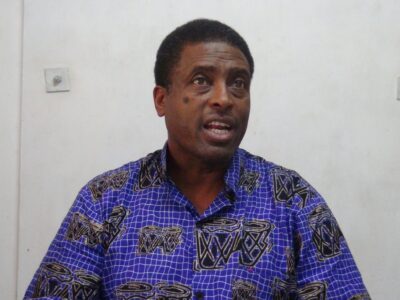A boost in daily cross border trade volumes and reduced long queues at Kasumbalesa Border post is expected following interventions by Zambia and the Democratic Republic of the Congo (DRC).
Centre for Trade Policy and Development (CTPD) expressed optimism that improving trade operations at Kasumbalesa Border would help advance daily cross border trade volumes.
CTPD Researcher for Trade and Development Emmanuel Muma said this development would also reduce long queues and related trade costs incurred by thousands of trucks carrying diverse goods and services.
Zambia and the DRC during the side-line meeting of the 36th Ordinary Session of the African Union Assembly in Ethiopia held bilateral talks about trade facilitation involving the Kasumbalesa Border.
Commenting on this development, Muma commended the two countries for a step taken.
“CTPD notes that improving trade operations at Kasumbalesa Border will help to improve daily cross border trade volumes and reduce long queues and related trade costs incurred by thousands of trucks carrying diverse goods and services through border into DRC and other SADC countries.
“CTPD thinks that it is very important that the two countries have raised concerns about Kasumbalesa trade facilitation issues again, but they should spare no time to bring about an actionable plan, as the time to address this problem is long overdue,” he said in a statement on Thursday.
Muma said Kasumbalesa was one of Zambia’s busiest borders, and that trade between the two nations had been steadily growing over the past few years.
This, he explained, presented tremendous business and employment opportunities for both nations.
He however urged Government gender-related trade issues be addressed concurrently as the government worked to discourse the obstacles to trade facilitation at the Kasumbalesa border.
Muma also advised the two countries to continue supporting small-scale traders, particularly women’s inclusion in customs and protection from women vulnerability risks in informal cross-border trading places.
“There is need to continue taking steps toward addressing the gender inequality challenge and directly implementing approaches to women’s economic empowerment through trade and gender mainstreaming and inclusion,” he said.
According to a recent mapping exercise conducted by CTPD with support from Oxfam dubbed “Valuing Women’s work”, women in Zambia face a number of challenges when it comes to cross-border trading, including gender discrimination, high resource demands, trade sexual favours and other trade barriers at the Kasumbalesa border.
Trade is male-dominated, with most middlemen operating as off takers that exploit women on their vulnerabilities.
The survey also discovered high rate of poverty, patriarchal cultural norms, and religion as some of the determinants of women’s vulnerability in various sectors.
WARNING! All rights reserved. This material, and other digital content on this website, may not be reproduced, published, broadcast, rewritten or redistributed in whole or in part without prior express permission from ZAMBIA MONITOR.












Comments